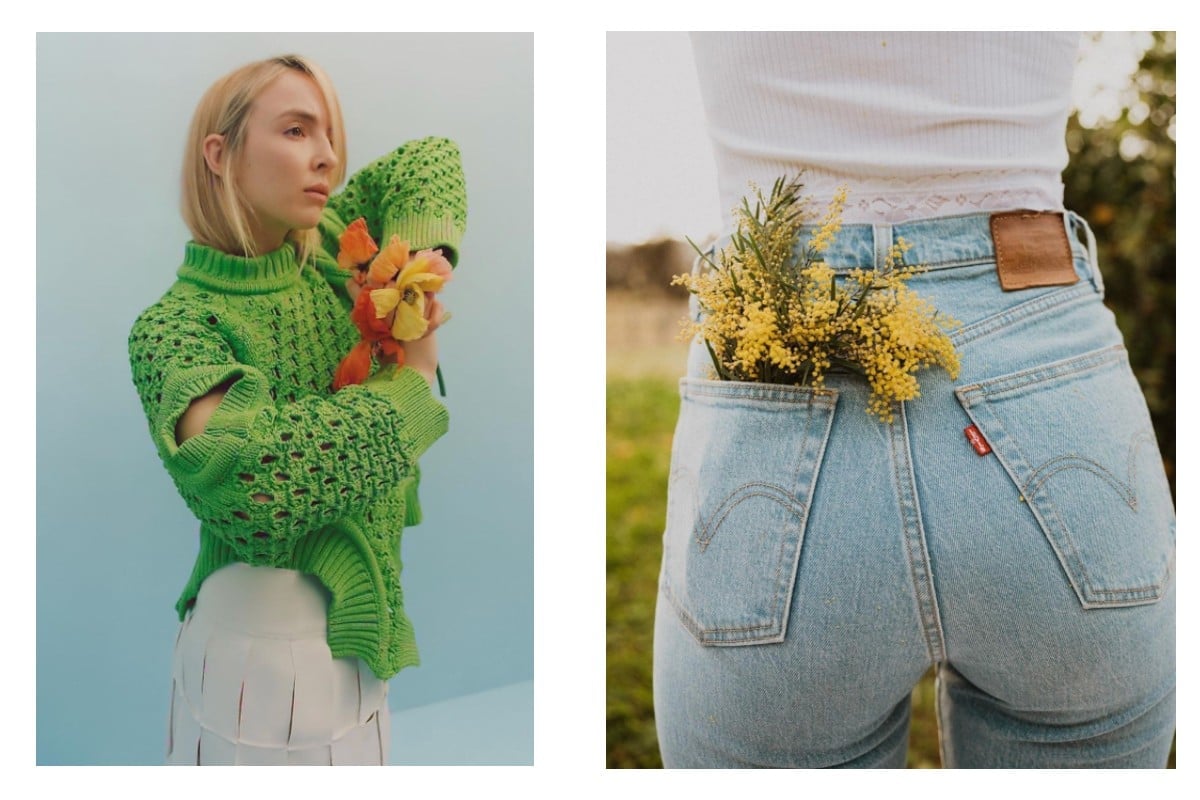
If we can be more conscious with our clothing choices and habits, isn't it our duty to do so? One manner in which this can be achieved is through upcycling or repurposing garments once they have reached the end of their life in our wardrobes. Buy-back schemes – an initiative organised by a brand or retailer used to collect products or materials from consumers that have been used and/or are no longer wanted – is one way in which this can be actioned. Much like refillable brands in the beauty industry, it is a means of working towards a more circular economy for all and minimising waste form our wardrobes. If you are looking to engage with brands who have their own buy-back schemes yet are unsure where to start, we've selected 10 brands with buy-back schemes with an explainer of how their approach to the idea works.
Patagonia Worn Wear
View this post on Instagram
Patagonia’s buy-back scheme allows customers to purchase, trade and sell used garments in a bid to reduce wastage. Since 2017, the brand has sold more than 120,000 repurposed and repaired garments through the scheme, a reflection of the desire for greater circularity in the industry.
For those not ready to let go of an item yet acknowledging it may be a shell of itself, the brand welcomes customers to visit a local store for a member of staff to inspect garments for refurbishment.
Levi’s Secondhand
View this post on Instagram
Levi’s SecondHand acts as a platform to trade used denim pieces in exchange for a gift card, with the garments then cleaned and upcycled to be sold for a discounted price. With the production of denim goods a large strain on the industry’s environmental impact, the initiative is a means of offsetting this facet of the Levi’s brand.
Stella McCartney x The RealReal
View this post on Instagram
Stella McCartney has been known for leading the way of sustainable fashion practices including the employment of vegan leather and lab-grown silk. In 2019, the British designer partnered her eponymous brand with resale site The RealReal, working to advance their shared value of promoting a circular economy in luxury fashion. For each Stella McCartney item consigned, shoppers earn $100 to shop sustainably from the brand. While not a traditional buy-back scheme, it is still worthy of a mention.
Reformation
View this post on Instagram
With help from thredUP, Reformation are working to make your wardrobes less cluttered. Through selling your old clothes for ‘Ref Credit’ or recycling them to thredUP and the brand will donate $10AUD to the Circular Fashion Find (CFF), a non-for-profit helping make a circular economy a reality.
Alexander McQueen x Vestiaire Collective
View this post on Instagram
Alexander McQueen and Vestiaire Collective launched the Brand Approved partnership to aid the facilitation and authentication of McQueen pieces on the luxury consignment site. McQueen stores contact their most frequent clients and offer store credit in return for garments, accessories and shoes from previous collections and, once the garments are provided to the relevant boutique, they are then made available for purchase on the Vestiaire site.
A.P.C Recycling
View this post on Instagram
France’s A.P.C launched its Recycling program in 2018, allowing customers to return old garments in exchange for store credit, with the amount for which they are eligible dependent on the condition of the garment. While A.P.C itself doesn’t repair its pieces, they are shipped to a recycling facility and broken down into fibres to be re-used in the production of new clothes, a common component of brands with buy-back schemes.
The North Face Renewed
View this post on Instagram
With a focus on repairing and upcycling defective or returned products, The North Face Renewed revives garments to an almost new state for them to then be sold at a discounted price. Outerwear is the most sought0after apparel, followed by shirts and pants with little no difference visible between the upcycled garments and the full-priced pieces.
Adidas Infinite Play
View this post on Instagram
Much like Patagonia, Adidas are encouraging shoppers to return their old, worn garments to be revived and repaired ready for a new life. If it is completely worn out, it will then be repurposed into a new garment, otherwise if appropriate for resale after repairs, it can take on a new home and a new life.
Lululemon
View this post on Instagram
As of April 2022 – specifically Earth Day 2022 – Lululemon has expanded its trade-in program allowing customers to drop off used clothing to stores with the brand then refreshing items and customers able to shop the gear off of the Like New section of its site.
Image: Instagram



